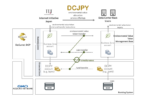The World Economic Forum has just published a report on blockchain’s potential to solve or assuage environmental problems.
The report identifies 65 existing or emerging environmental use cases for blockchain, which are broken down into eight main “game-changers”:
Transparent supply chains
Blockchains record and allow shared access to each transaction completed. This transparency allows companies to fulfill any environmental or sustainable promises by demonstrating provenance. But it can also help industries manage resources to ensure sustainable practices.
Decentralised resource management
Decentralised platforms can collect information from energy grids and water systems. This could end any asymmetries in energy generation and clean water production, enabling better system design and management. Furthermore, a decentralized P2P utility platform would enable resource trading which could more efficiently allocate power and water with fewer intermediaries.
Financing
Blockchain platforms could simplify investing for retail players. This allows environmental projects to crowdsource from a larger pool, unlocking otherwise dormant capital. Moreover, a ‘tokenization’ of financial investments could remove the need for third parties, enabling a swifter and more efficient process. It also enables stakeholders to participate as opposed to just shareholder.
Circular economy incentives
By incentivizing people to recycle, blockchain systems could unlock financial value from otherwise ‘waste products’. This would decrease the level of waste we produce and change our attitudes towards these products. For example, a reward token could be issued when an individual recycles plastic or batteries, which he could then spend on other products.
Carbon Markets
Critics of the carbon credit trading system usually point to its lack of transaction traceability, differing laws and jurisdictions, and potential for double counting. Blockchain’s transparency offers solutions that solve these problems, potentially allowing a feasible carbon trading system
Sustainability monitoring
The transparency of blockchains enables people to monitor claims by governments and companies. Hence it encourages them to improve their performance and ensure more sustainable practices.
Automatic disaster preparedness and humanitarian relief
Blockchain could better connect emergency services with people and improve humanitarian relief. For example, if a community needs drinking water or another commodity. Smart contracts could enable automatic matching based on timing, location, pricing, quantity, and other community needs.
Earth-management platforms
New blockchain platforms could help with geospatially monitoring natural resources. For example by tracking biodiversity or an endangered species. Projects like Amazon’s Earth Bank of Codes are already doing this in a collaborative but centralized manner.
The report also identifies obstacles that blockchain systems could face. These include privacy, scalability and legal issues. Right now, public blockchain systems such as Ethereum don’t have the technological ability to carry out the above solutions. Their transactions per second cannot handle it.
With borderless systems that absorb and use information on a vast scale, it is inevitable that privacy and legal issues will arise.
However, despite these problems, the report remains optimistic on how blockchain and the ‘Fourth industrial revolution’ could be a ‘unique opportunity to help address environmental issues and transform how we manage our shared global environment’.







